Thou guitarist Andy Gibbs: 5 players who blew my mind
Matt Pike and Billy Corgan are among the guitarists who lit the fire under Gibbs' downtuned, slo-mo riffing and songwriting

In a world of extremes, few bands manage to sound as blisteringly heavy as Thou. Hailing from Baton Rouge, Louisiana, these titans of slow, oppressive sludge metal have been pummelling audiences into submission with their triple-pronged guitar assault since 2005.
Their downtuned riffs lumber along at a deliberate pace designed to maximise their heaviness, while vocalist Bryan Funck's piercing screams tearing through the mire to create a punishing yet aesthetically addictive sound.
Thou have always been a band that operates on their own terms, with a fierce independence and a DIY spirit that is heavily informed by their shared ethical and political world views.
This is highlighted by their prolific output; the band has a back catalogue filled with collaborations, split releases and an eclectic mix of cover songs. However, it was their recent collaboration with esteemed vocalist, guitarist and visual artist Emma Ruth Rundle that pushed their creativity to new heights.
I was writing for Emma's vocals to be front and centre. If I would have just written a normal Thou song, I don't know that it would have worked well
Following our discussion with Emma earlier this month, we spoke with Thou guitarist Andy Gibbs about the creative challenges involved in working with such a distinctive artist, the evolution of Thou's sound, as well as discussing the five most important guitarists who have influenced his own playing style over the years.
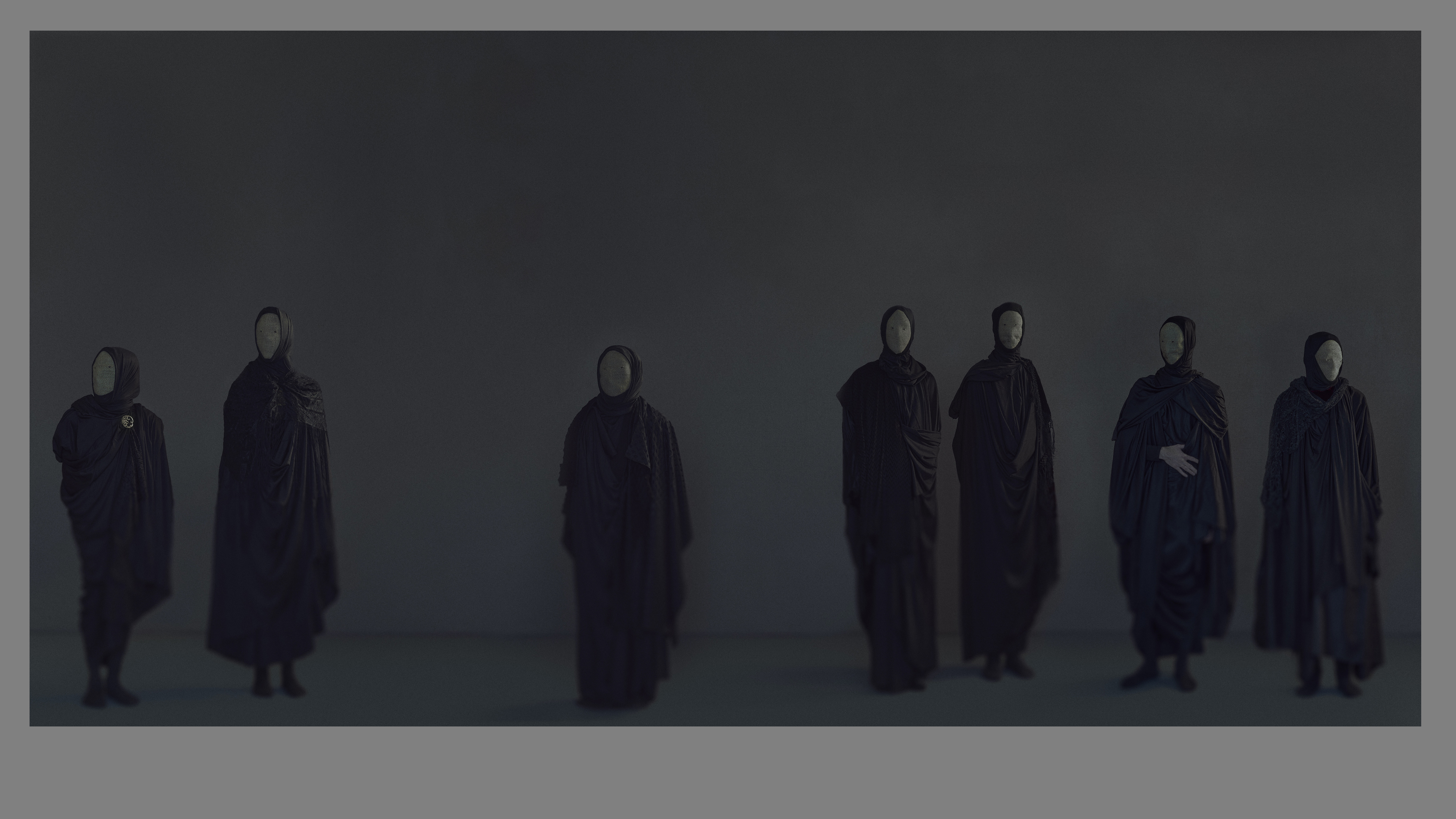
Taking over a year to write and record, May Our Chambers Be Full is an album that sounds thoroughly evolved. The core aspects of each artist's sound are captured in full, with no half measures. Each note of every song has the DNA of both Emma and Thou firmly woven into its fabric.
The secret to this, Andy tells us, is down to a shared love of one another's work, as well as complete dedication from both sides to create something new.
Get the MusicRadar Newsletter
Want all the hottest music and gear news, reviews, deals, features and more, direct to your inbox? Sign up here.
“Most of the writing was split between Emma and I.” Andy says. “When I sat down and started writing, I was specifically thinking of what I can write that would work with Emma's style. I was writing for her.
I became really obsessed with Wipers and Greg Sage's really aggressive way of playing, just downpicking constantly
“I was writing for her vocals to be front and centre. If I would have just written a normal Thou song, I don't know that it would have worked well to have her just work with that – so it was definitely an intentional thing.”
“Once we actually came together and worked with each other's ideas, it didn't feel forced for us to merge our styles – but I think we did have to do a bit of intentional planning. From her style, she had to come at things a little harder and get a little more riffy than she normally would. And we had to get a little more restrained and leave space for her vocals.”
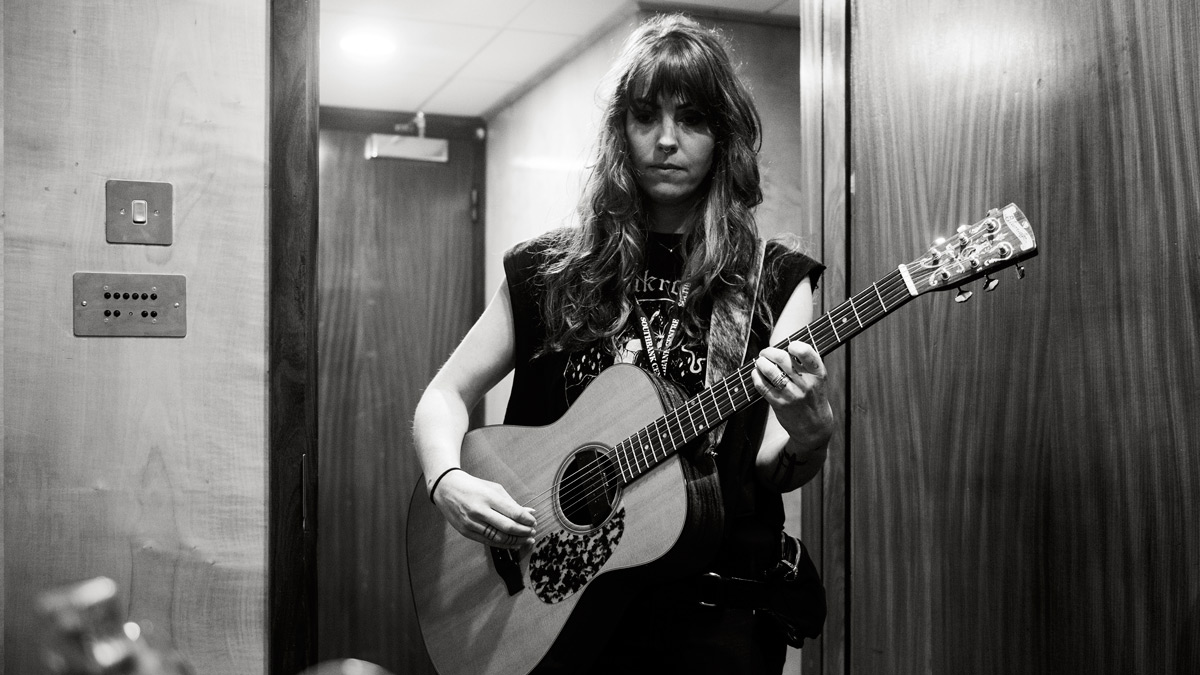
"This album is just crushingly sad" – Emma Ruth Rundle chooses the 10 albums that changed her life
From a lyrical perspective, both artists are also very identifiable. Emma's words are often deeply personal, with Thou more likely to explore political themes such as anarchism. The result on this album is something entirely new for both parties, and remarkably cohesive.
“The lyrics were split between Emma and our singer Bryan, and I would say they were split pretty evenly. Emma had a few songs that she wrote the lyrics for entirely, and Bryan had some that he wrote entirely – and they had a couple where it is kind of on a line by line basis. People who are very familiar with both will probably be able to tell who wrote what. We really kind of left it up to the two of them to figure that out.”
Forging a friendship and a relationship with Emma was just a really fulfilling thing
“I was telling someone yesterday that I really feel like with Thou in general I have always taken the lyrics at face value, and apply my own interpretation to what they might mean.”
Emma has spoken on many occasions about her admiration for Thou, and how working and touring with the band made her want to be a better person. So what did Andy learn from Emma, either musically or personally, and what about her music or art, or just her as a person, inspired him?
“That's a great question. I think that in terms of her as an artist, I think all of us definitely were forced to meet her at her level of commitment to what she does. When I sent her the first song idea for this collaboration, she immediately listened to it, gave me notes on it, learned it on guitar without any prompting and then showed up ready to play it.
“That's something I would do in my band, but that's not necessarily the norm – I think she definitely inspired us to knock our work ethic up a notch. On a band level, it was definitely inspiring how she came ready to play and with all of these songs that were developed enough for us to dive right into.”
It was definitely inspiring how Emma came ready to play and with all of these songs that were developed enough for us to dive right into
“On a personal note, we've probably done around the same amount of touring as one another. I notice that on the road, she takes things in stride a lot better than we do, and she has a calmness and a fearlessness about doing things the way that she wants, and I really admire that.
“For instance, if she really needs for something to happen in order for the show to go ahead, whether that's a sound request or something, she's going to be very upfront about that – whereas we are more like 'Hey, if you please maybe don't mind, can we have a little bit more in the monitor?'.
“Emma has no qualms about saying, 'Hey, I am performing and I want it to go well.' I think that is something I want to do better at now.”
This isn't the first collaboration Thou have been involved with; most notably they have made a couple of records with experimental noisemongers The Body. But Emma has a creative energy that requires closer examination.
“You would think that having more people to collaborate with would mean two more opinions and more things to work around, but I really think it varies from artist to artist. With The Body, they really just let us run wild.
“They'd show up to practice with the intention to just jam together rather than come in with any riffs. When it came to write songs, it all happened just organically and they let us steer some of the ship. When it became time to go to the studio, that's when their input would become a lot more apparent.”
I would say that Emma, as one person, took up more creative space in the writing phase than both members of The Body did
“With Emma, she has a lot of opinions with songwriting and has a lot of input in that process. I would say that Emma, as one person, took up more creative space in the writing phase than both members of The Body did – just because of her nature and how particular she is.
“The Body were just down to let things flow. Either way, working with that many people is kind of a fucking nightmare! It is amazing we managed to come out sane to be honest.”

From the outset it was clear that Thou and Emma were going to tour together too, and Thou are a band that will live and die by their DIY nature. Andy says that Emma's willingness to adapt to their way of working was indicative of her own experience as an underground artist.
“For us, I think we would be more reluctant to collaborate with people who weren't receptive to the way that we like to do things. When Emma came onboard and we went on tour together, she understood that we might do things different to her and that we do matinee shows, we might cram in a shitload of shows into a day and play in weird spaces and stuff like that. She knew all of that coming into it, and I don't think we would want to go on tour with someone who isn't down with that.”
“Most of our friends don't do things exactly the way we do things, but they come from the same DIY background and that is part of what we were drawn to in the first place. We wouldn't have met Emma if we both didn't come from the same DIY world, so we really try to only deal with people who understand that world and that ethic - whether it is promoters, labels or artists.“
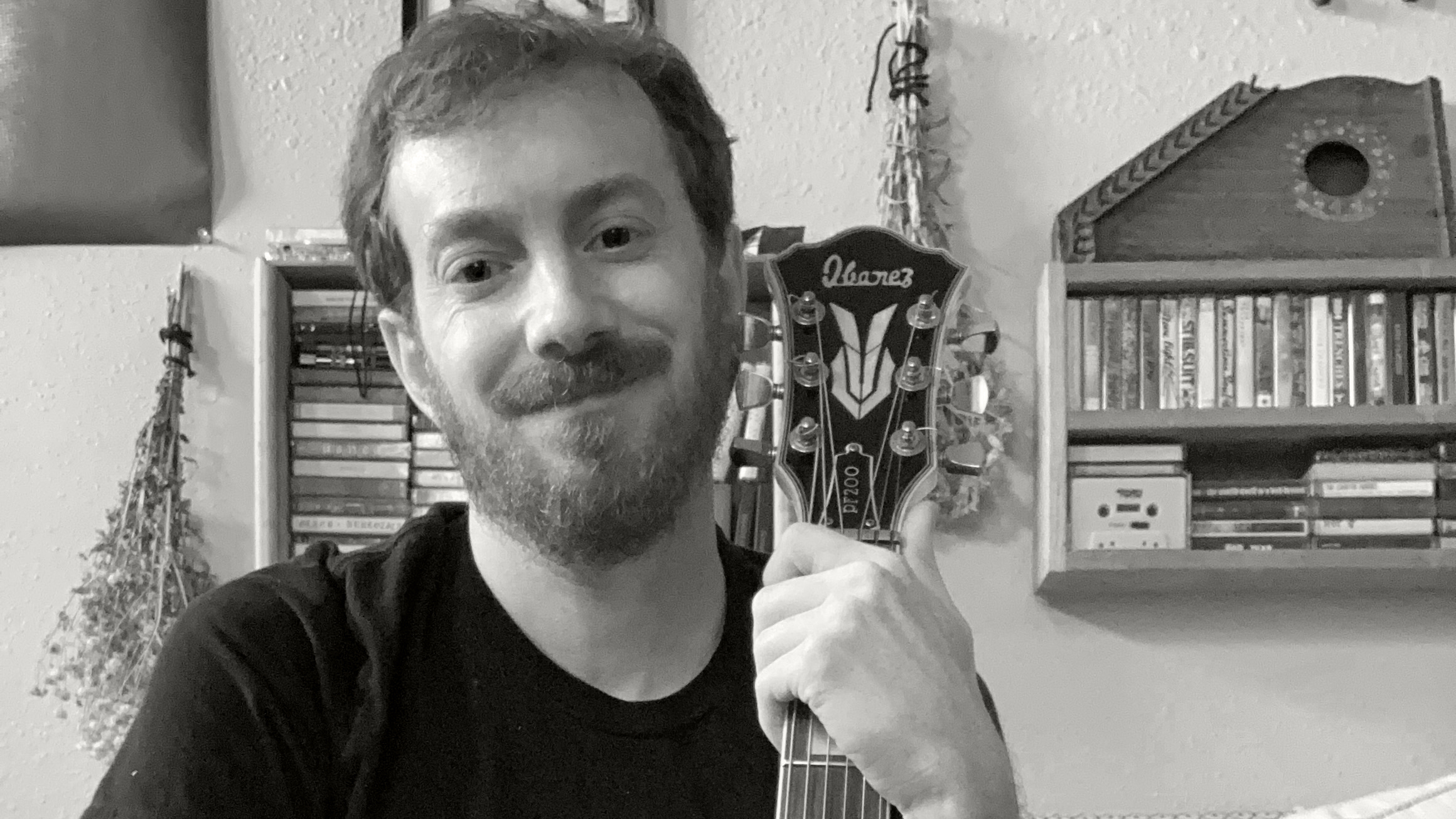
With the collaboration due to be released into the world in the coming weeks, Andy looks back on the period of creation with fondness, summarising what the album means to him and how creating something so heavy can actually be life affirming.
“To me, I look at that phrase – May Our Chambers Be Full – and it is reminiscent of the way this collaboration came together with the seven of us, and how maximalist everything was. So many people, so many riffs, and so much sound.
“With Emma involved, that meant we had four guitarists. And not just that, but also how emotionally charged everything was – Both in terms of the music itself, but also in terms of us collaborating together.
“That was a very emotional experience, forging a friendship and a relationship with Emma was just a really fulfilling thing – so the title sort of touches on that as well. The feeling of doing this collaboration was like bursting at the seams and being completely filled up with creativity and emotion.”
Like all musicians, Andy's way of playing was shaped by an array of diverse and unique players. Here he picks the five guitarists that have informed his own style and had the biggest impact on how he works.
“When we started Thou, I was really very deliberate with my guitar style.” Andy says. “If I heard something I liked in another band I would think “Right, I'm going to rip this off!”. But what I would do is filter it through my lens, and when it comes out the other end in one of our songs, maybe you won't be able to tell that I was ripping it off. I think that is what most people do, frankly!”
Wata – Boris
“My favourite thing about Wata's playing is the way she approaches solos. I really try to emulate how she does this. She works with sustain in her playing in a way that I find fascinating.
“She will have a lot of gain going on, and slide up to a note and hold it by wiggling her finger – I don't know what you actually call that technique, but in Thou we refer to 'putting a little Juice on it.' But by doing that, she'll get the harmonics and the feedback in just a certain way that I love.
“I have done that on so many records. That coupled with her tone and the way she works with delay, that's always been something that I find really cool.”
Whenever we have attempted to branch out a little bit, I think of Boris and it kind of gives me a little bit of permission to take risks
“The way that Boris in general approaches music is something that really influenced me. When I first started listening to that band I realised you could really widen the boundaries and scope of what you were going to do in the context of a metal band. “
“Whenever we have attempted to branch out a little bit, I think of them and it kind of gives me a little bit of permission to take risks without worrying what other people think about it.”
“We played a few shows with them back in 2016 which was such a dream. I didn't really get to hang out with them but it was still such an honour to play with them.“
Matt Pike – High on Fire / Sleep
“I don't cite Sleep as an influence and honestly, I'm not that big of a Sleep fan – I don't think that his guitar work in Sleep is particularly interesting. But his work with High on Fire was a huge, huge influence for me. Just the way that he structures his riffs.
“He also has a certain technique that I've ripped off – he'll have a chord going on, a strummed chord, and then he'll move his fretting finger around without having to pick again because there's so much gain going on. It is kind of hard to describe, but again, it is a technique that I have used on almost every record we've done with Thou.”
I wish I could say that his solos are as big an influence but I really can't approach that level of soloing – it's just not in my technical wheelhouse!
“He also just has a certain way of writing riffs that I appreciate from a melodic standpoints. The scales and the harmonic structure he uses is something that I pull from a lot. I wish I could say that his solos are as big an influence but I really can't approach that level of soloing – it's just not in my technical wheelhouse!
“But he is still one of my favourite people to watch play solos. Those first three High on Fire records were just a huge influence on me, especially when we first started this band. I wanted to run those kind of riffs and run them through the Thou filter of being slow and barely intelligible, and see where they come out.”
Billy Corgan – Smashing Pumpkins
“It actually pains me to mention his name a little bit, because I really don't like him as a person, but I can't deny that he was a huge influence on me. Smashing Pumpkins are arguably my favourite band of all time. His guitar tone, and his approach to solos in particular are really huge things for me.
“His solos are very abstract and he also works with a lot of harmonics that I think are really cool – and the approach to songwriting has rubbed off on me in some way, at least the first three records, which I still listen to almost constantly.”
When you are 12 years old and you hear a band you love, you're like a little sponge
“It is hard to say what I have pulled from his playing, but when you are 12 years old and you hear a band you love, you're like a little sponge. Your brain isn't fully formed yet and you can just subconsciously inherit all of that stuff.
“I remember hearing Cherub Rock on the radio and I used to call the radio station over and over to get them to play it because I didn't own the album. Eventually I started making mixtapes of their songs that I would record off of the radio, and would even record it twice in a row on the same cassette tape so I could listen to it twice in a row.”
Greg Sage – Wipers
“Wipers are a band that I wasn't even aware of until 2009 or so, but I remember reading that Nirvana took a lot from them. Once I looked into their album Over The Edge, I could totally hear it. Even though they don't sound anything like Nirvana, you can still totally hear the way his playing influenced Kurt Cobain.”
“I became really obsessed with that band and his really aggressive way of playing, just downpicking constantly – And he also does something which I do a lot now, which is to hold a chord and just let the other strings resonate and ring out. They have a cynicism to their music which I really like. It is catchy and cynical at the same time.”
Robin Guthrie – Cocteau Twins
“When you think of The Cocteau Twins, you never really think of them as a guitar band even though there is guitar all over most of their records. Robin doesn't stand out as a guitarist in a traditional sense because, aesthetically, it is buried under so many layers of other stuff.
“Even some of the more transparent work like on Victorialand, there's still a lot of effects and stuff going on. He does a really good job of creating atmosphere, and that is something that I have tried to work into our band, at least to the extent you can work it into a band like ours.”
“I listen to Cocteau Twins every day, they're one of my favourite bands, and so that kind of fragility and atmosphere is something that I really wanted to bring not just to our band but to the collaboration.
“I thought that working with Emma was a really good chance to write something that is a little more fragile and delicate than what we usually do – but equally there is 3 guitarists playing through half stacks, so how delicate can it get? But to the extent that we could do it, I was definitely trying that.”
I've been someone that has always hated chorus pedals too. I've had no use for them in my entire life and they have a way of making something sound so 80s. But listening to so much Cocteau Twins in my musical diet has led me to consider it
“Robin will do things like hit a chord and let it resonate and sit there for a while, and leaves a lot of space and that is something I try to do a little more. We are always changing.”
“I've been someone that has always hated chorus pedals too. I've had no use for them in my entire life and they have a way of making something sound so 80s, and it is just an aesthetic that just brings you to a certain time and there's almost no way to divorce it. But listening to so much Cocteau Twins in my musical diet has led me to consider it, especially on our collaboration with Emma.
“On the song Killing Floor, there is a part at the end where I did a clean guitar overdub and our engineer James suggested we use a chorus pedal in there, and it works because it is buried underneath so many other layers.”
“If you can repurpose it for something new then I think that is cool. Trying to nail a very specific aesthetic is something which is very popular right now. I'm kind of torn on that, and it really depends on a case by case basis whether I like it or not.”
The Emma Ruth Rundle & Thou album May Our Chambers Be Full is released on 30 October. For preorders visit Bandcamp.com
Sam Drower is a sound engineer, musician and all-around music junkie based in Bristol, UK. He began contributing to MusicRadar in 2020, when the global pandemic brought live music to a screeching halt. When not behind the mixing desk for various bands, he is playing bass for blackened mathcore group Host Body.
“I’m beyond excited to introduce the next evolution of the MT15”: PRS announces refresh of tube amp lineup with the all-new Archon Classic and a high-gain power-up for the Mark Tremonti lunchbox head
“These guitars travel around the world and they need to be road ready”: Jackson gives Misha Mansoor’s Juggernaut a new lick of paint, an ebony fingerboard and upgrades to stainless steel frets in signature model refresh
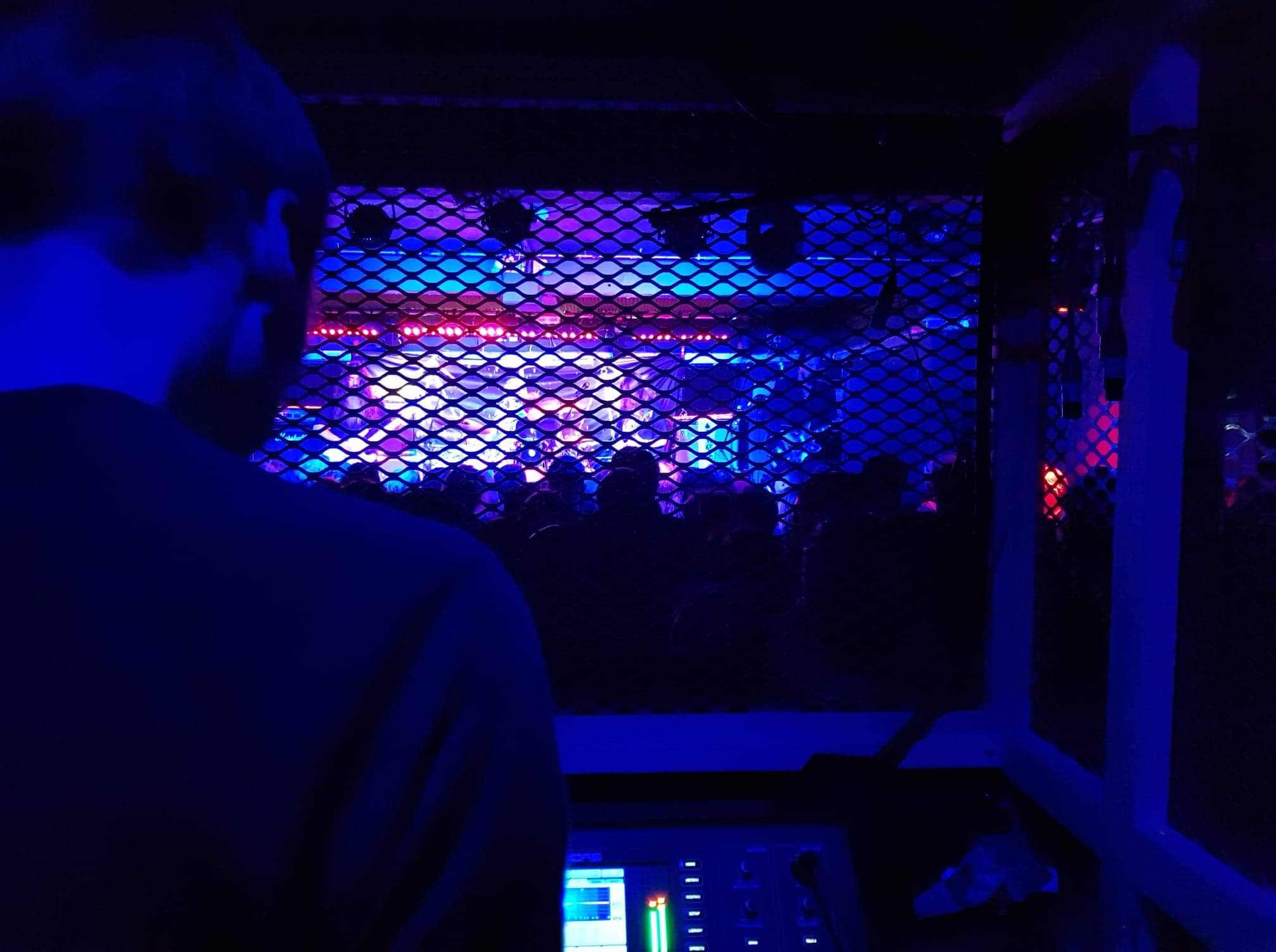


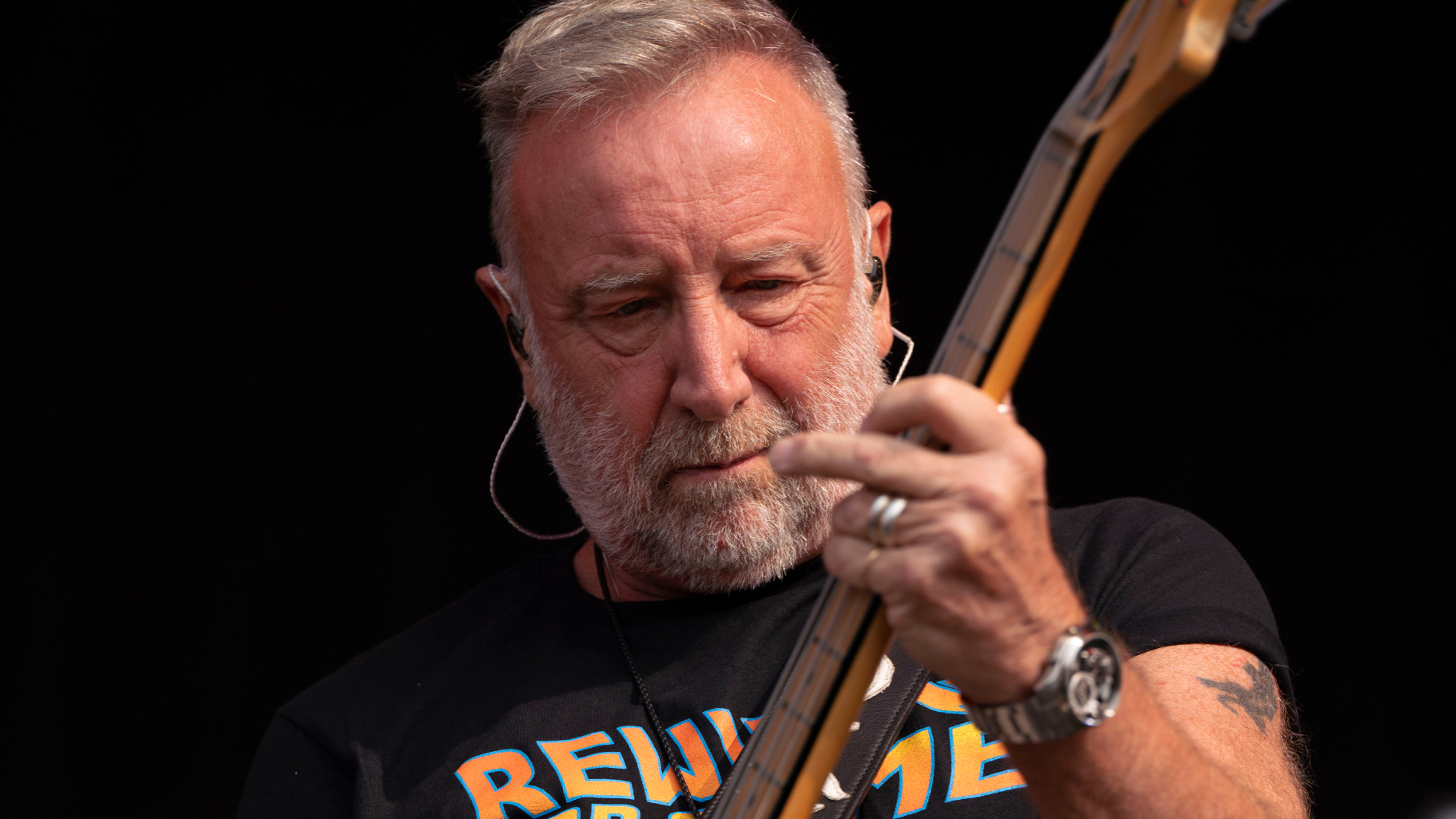
![PRS Archon Classic and Mark Tremonti MT 15 v2: the newly redesigned tube amps offer a host of new features and tones, with the Alter Bridge guitarist's new lunchbox head [right] featuring the Overdrive channel from his MT 100 head, and there's a half-power switch, too.](https://cdn.mos.cms.futurecdn.net/FD37q5pRLCQDhCpT8y94Zi.jpg)





